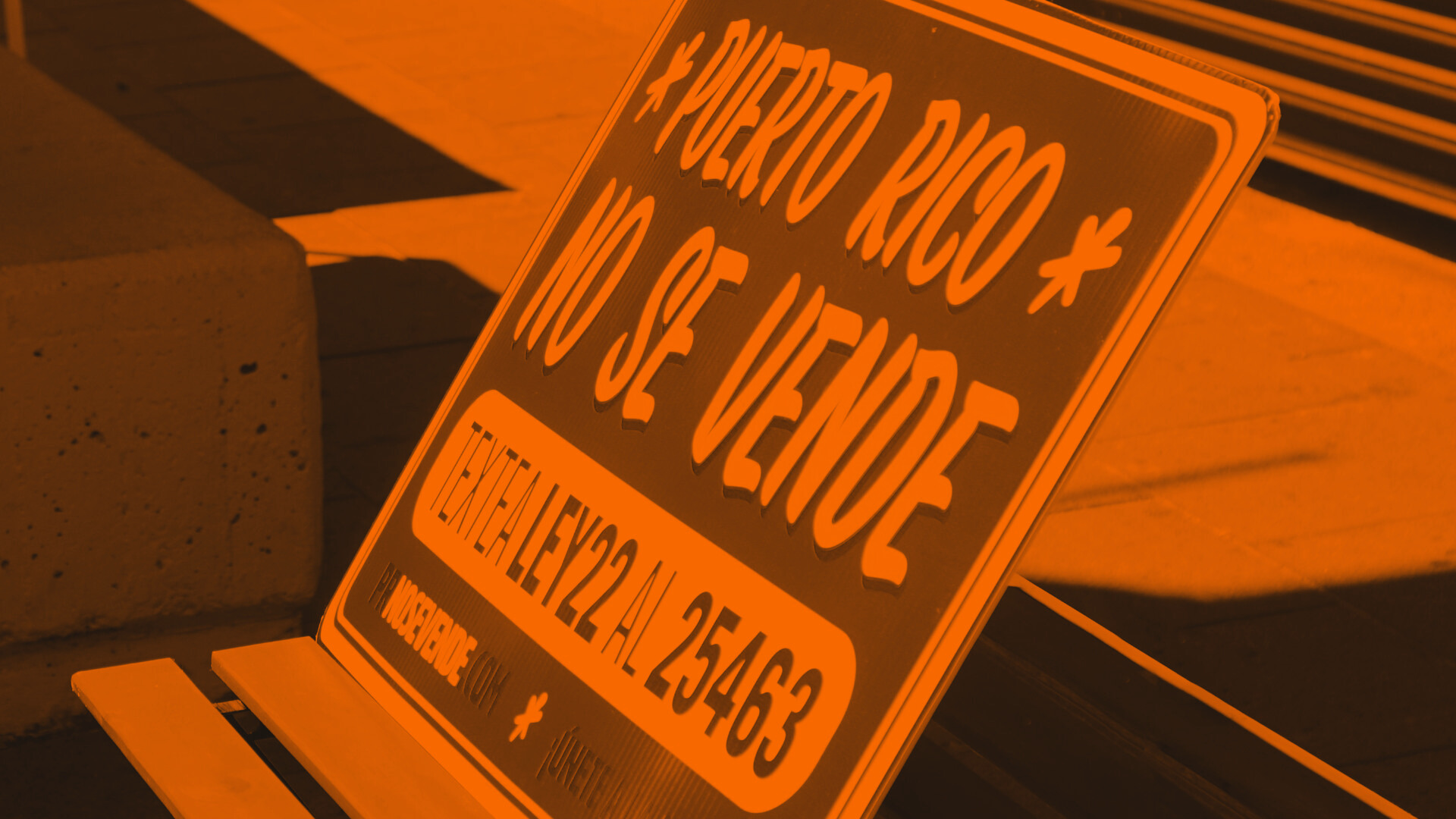
Madres de la Tierra: Women Leading Environmental Justice Movements in Puerto Rico
This photo essay’s title underscores the significant global role women play in protecting and advocating for the health and well-being of their communities and shared ecosphere. In every corner of the globe, community and Earth stewards put their lives on the line and prioritize community work to demand environmental, climate, and ecological justice. In the Americas, the ethnocidal European conquest created a patriarchal, colonial, and capitalist system sustained by white-supremacy, domination, and violently extractive practices. This system under which we still live conceives of the Earth and women, and particularly Indigenous, Afro-descendant, and socioeconomically-disadvantaged women, as exploitable and expendable resources from which to extract life and labor. Today, the continued unbridled extraction of Earth’s livingness is bringing us dangerously close to the brink of ecocide. Yet, as producers, sustainers, and protectors of life, women the world over have sounded the alarm about the health of communities, humanity, ecosystems, and the Earth and are working to protect these spaces and places.
In Puerto Rico too, women are at the forefront of answering the global call to action to protect the Earth from the ongoing destruction wrought by the relentless forces of patriarchal, neoliberal, and (neo)colonial capitalism. Puerto Rican activists have estimated that women comprise about 70% of grassroots volunteers, community activists, and environmental and social justice advocates working in the archipelago today. In this photo essay, we offer a close-up view of ten Puerto Rican community and Earth stewards, eco-social advocates, and activists who work tirelessly to educate, protect, and care for the archipelago’s nature and people. In the last decade, the colony has faced economic and political upheaval, as well as intensifying atmospheric, geological, and viral hazards and traumas. Combined, these calamities have challenged the population’s ability to lead healthy, dignified, and safe lives, as well as Puerto Rico’s viability as a place. At every turn though, these challenges and harms have been met by the tenacity, ingenuity, hard work, and perseverance of the Puerto Rican people, with women leading the ecojustice charge, both on the archipelago and in the US diaspora.

As Puerto Ricans navigate threats to survival and wellbeing in the aftermath of Hurricane Fiona, residents also are reliving the devastating impacts and governmental harms they experienced following Hurricanes Irma and María. On this six-year, September 2023 anniversary, we honor community women, both in the archipelago and in the Diaspora, who work as first responders and as enduring sources of wisdom and strength. Women and their families cook, share food and water with family, neighbors, and community; care for elders; help clear debris; share batteries, lamps, and electric extension cords; give car rides; wait together in long lines for water, fuel, and at hospital queues; and come together for support and to commiserate about the disastrous impacts of these storms. In the Diaspora, women organize fundraisers, send supplies to family and friends, and express public indignation on social media, at protests, and whenever possible, to stateside politicians, about the botched recovery. Together, Puerto Ricans everywhere, continue to mourn the loss of the thousands of people who perished as a result of Hurricanes Irma, María, and Fiona. These lives stand as reminders of the structural and systemic threats posed by privatizing the electric grid, all while the local and federal governments demonstrate continued ineptitude and cruel disregard in the face of worsening climate catastrophes that jeopardize community survival, health, and wellbeing. If the last six years have taught Puerto Ricans anything, it is the importance of diasporic-archipelagic alliances in the form of inter- and multi-generational solidarity efforts to build a sustainable, liveable, equitable, and healthy Puerto Rico for our people, while also safekeeping the ecosystem that sustains life in the archipelago.

The community and Earth stewards featured here devise various strategies to cope, survive, and thrive within and beyond an oppressive political and economic system. For instance, land protector Mariolga Reyes Cruz explained that to deal with the upheavals of the present, she and her family engage in modern-day marronage. Out of necessity, they create escape routes to protective spaces, thereby cycling in and out from the power-driven, competitive, extractive-destructive sociopolitical systems at work in the present. Mariolga juggles many strategies to live well and enjoy life within a system that doesn’t make it easy for everyday people to live good and dignified lives. Anabela, a health promoter and community activist from Loíza, explained that she loves her town, her community, and her neighborhood. It is this love for place--its nature, its people, and its networks of mutual aid that sustains them–as well as the ancestral knowledge about nature and living well, passed down to Anabela, that drives her dedication to ecojustice in the archipelago.

Collectively, these women are shaping Puerto Rico into a healthy and safe space for all. The archipelago’s women-led environmental, climate, and ecological justice movements account for historically marginalized groups, such as “Nature,” women, Black Puerto Ricans and Afro-descendants, Black migrants, rural peoples, and LGBTQ+ communities. Together, we believe that a radically inclusive future, where all can survive and live good lives, is the only sustainable path for the archipelago and our people. Though we highlight individuals and groups that are building environmental, climate, and ecological justice, this collective story is just one presentation of these struggles. Accordingly, our work invites continued storytelling that supports community building and root transformations for surviving and flourishing in the archipelago and beyond.


This photo essay and oral history project was produced by 9 Millones, a network of educators, journalists, and designers who offer constructive, data-driven narratives that help our communities advocate for a healthier, more prosperous, and joyful society. The series Madres de la Tierra, highlights women that are cultivating and birthing innovative projects addressing environmental and climate injustices across the archipelago of Puerto Rico. Made possible thanks to the support of the Economic Hardship Reporting Project. To access all of the profiles and oral histories visit www.madresdelatierrapr.com.




